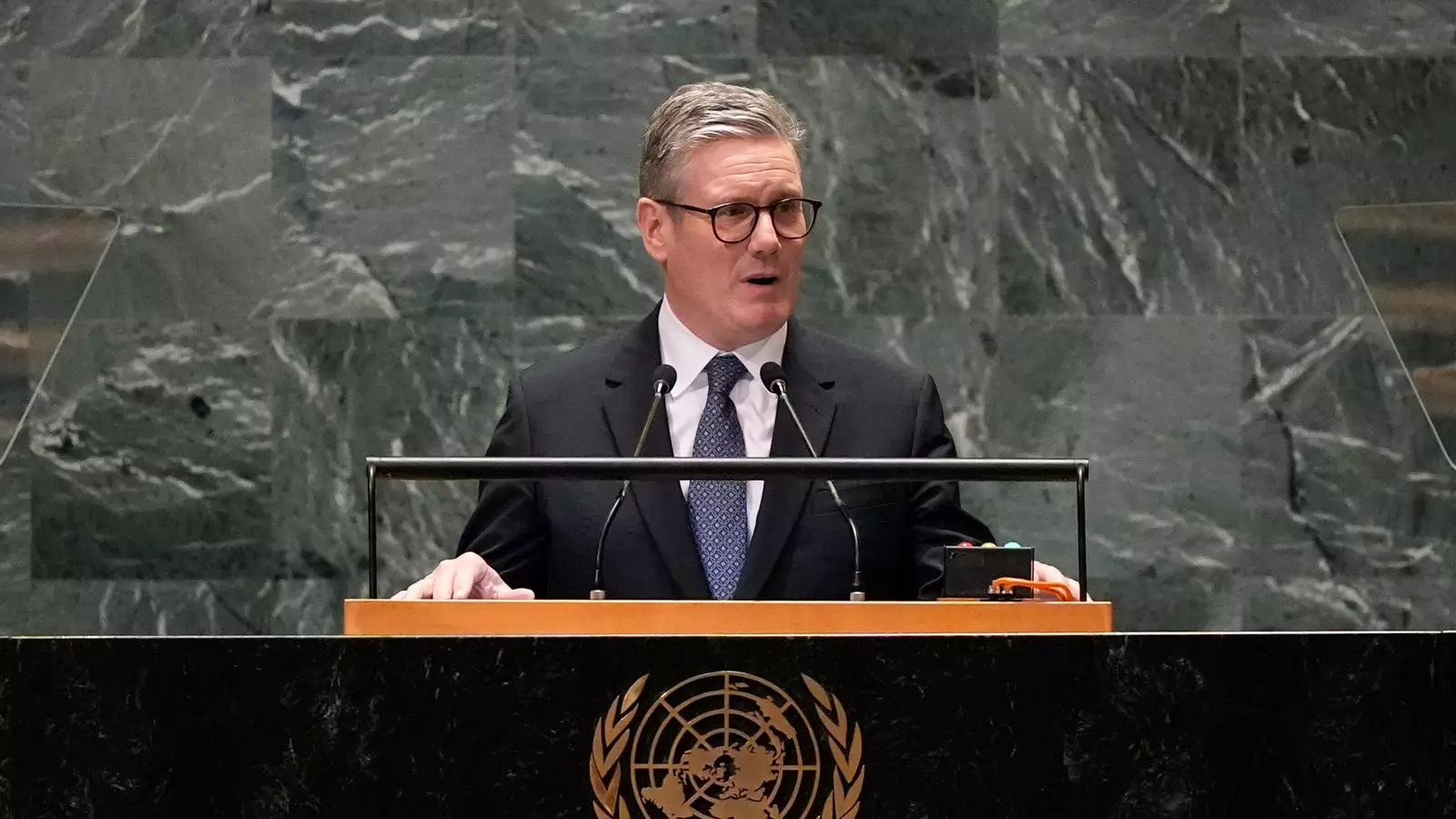In a world fraught with geopolitical tensions, the importance of diplomatic dialogue cannot be overstated. During a recent address at the United Nations General Assembly, UK Prime Minister Sir Keir Starmer emphasized the urgent need for a ceasefire between Israel and Hezbollah. His remarks, delivered in the heart of global diplomacy, sought to de-escalate a crisis that risks spiraling into a broader conflict. Starmer’s call for peace is not merely a request for tranquility; it reflects a broader understanding that continued violence serves no purpose and only compounds the suffering of innocent civilians.
Starmer’s appeal highlights the critical responsibility of world leaders to step back from the brink of war. Despite the ongoing military actions from both sides, with Israeli Prime Minister Benjamin Netanyahu asserting that his troops would continue their offensive operations, Starmer’s message resonates as a plea for rationality and restraint. The spiraling violence in the region is devastating, and calls for peace are essential in the quest for stability.
Sir Keir Starmer’s address served not only as a call for ceasefire but also as a broader commentary on the role of international institutions like the UN. He underscored the necessity for collaborative efforts to foster peace, equality, and progress in conflict-ridden areas, particularly in the Middle East. His insistence that the UN should facilitate a diplomatic solution indicates an awareness of the limitations of military force in achieving lasting peace. Starmer’s vision for a multiparty engagement reflects a modern approach to diplomacy—one that prioritizes dialogue over discord.
Moreover, the Prime Minister’s comments on the importance of preventing a regional war align with a growing consensus among world leaders that unchecked conflicts have the potential to destabilize not just neighboring nations but the world as a whole. The interconnected nature of global politics today necessitates proactive measures against war, as the repercussions can lead to widespread humanitarian crises, displacement, and further violence.
In a subsequent part of his speech, Starmer pivoted to the issue of Russia’s aggression in Ukraine, labeling it as one of the gravest violations of international law in recent history. His critique underscores an ongoing challenge faced by the UN Security Council, which must navigate the complexities of global power dynamics. Starmer’s remarks implicitly call for reform within these institutions, advocating for a revival of commitment to the UN Charter and an earnest approach to conflict resolution.
His emphasis on “new energy and creativity” for resolving conflicts holds significant weight in a landscape where traditional diplomacy has often faltered. Starmer’s vision for the future is one that rejects complacency and champions innovative strategies as a means to reverse the rising tide of violence.
While Starmer’s international agenda is poignant, he also addressed pressing domestic issues, advocating for the strategic investment of pensions and insurance funds into climate change initiatives. This dual focus on domestic policy and international diplomacy showcases Starmer’s understanding of the intersectionality between global issues and local realities. By pledging significant financial resources toward combating climate change, he aligns the UK’s policy direction with the pressing challenges of our time, emphasizing sustainable growth as a national priority.
His commitment to channeling public and private investments through British International Investment underscores a forward-thinking approach. Starmer’s insistence on “innovating” and “thinking differently” is particularly relevant as the world grapples with the repercussions of climate change—issues that transcends borders and require a collective response.
As Prime Minister Starmer prepares for future engagements, including a planned meeting with Donald Trump, the dynamics of his diplomatic moves will be under scrutiny. His ability to navigate complex international relationships while holding steadfast to his principles will ultimately reveal the effectiveness of his leadership on the global stage.
Sir Keir Starmer’s recent address at the UN General Assembly is a call to arms for diplomatic engagement over violence. His emphasis on a ceasefire in the Israel-Hezbollah conflict, paired with a clear denunciation of aggression by Russia, positions the UK as a proactive player in the pursuit of global peace. Through innovative investments and a renewed commitment to conflict resolution, Starmer seeks not only to change the narrative surrounding his government but also to influence the broader trajectories of international relations in a tumultuous world.

Leave a Reply